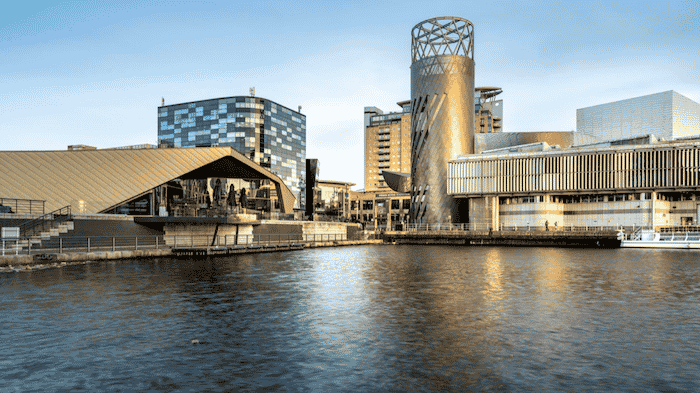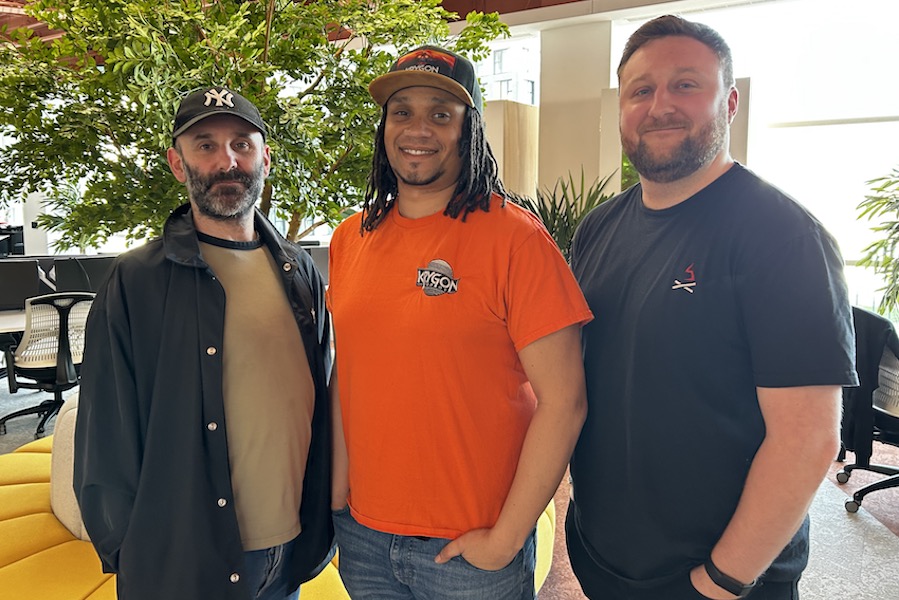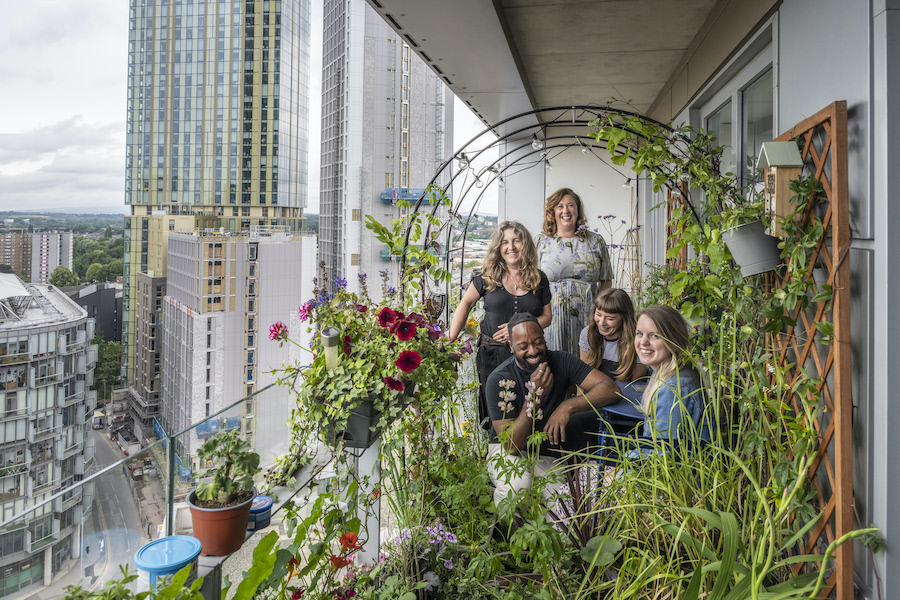Mustard Tree: inside the Ancoats charity helping hundreds of rough sleepers every year
- Written by Susan Griffin
- Last updated 6 years ago
- City of Manchester, Community
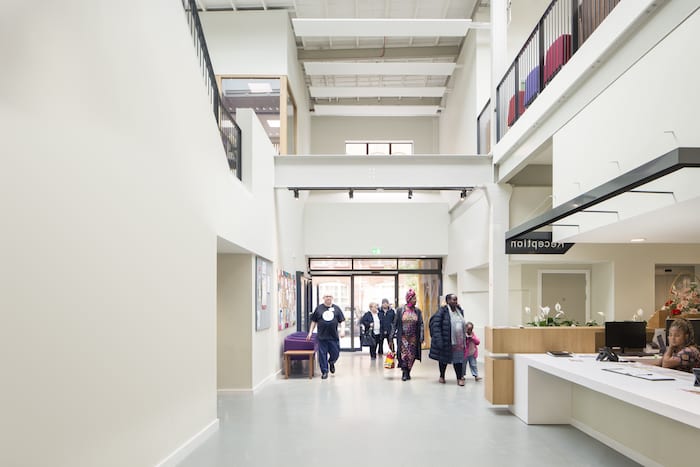
The entrance to Mustard Tree in Ancoats is light, bright and welcoming.
“We always say, just because you’re at your lowest ebb doesn’t mean you don’t deserve the best,” says Aileen Stirman, head of development at the charity which helps the city’s rough sleepers.
It didn’t always look like this. The current site was in a sad state until the landlord Anthony Preston, the founder of Pets at Home, stepped in and donated the money needed to renovate the building. The effort hasn’t gone unnoticed.
“A man called Mark told me, ‘If I go anywhere else for help, I feel like I’m getting charity, but when I come here, I feel important just walking through the front door’,” says Aileen.
“No matter how bad life is for you right now there is a chance for change. You’ll get the same welcome whether you’re a rough sleeper or a CEO.”
Founded in 1994 by Dave and Shona Smith, who headed out with a flask and sandwiches to talk to rough sleepers across Manchester, Mustard Tree now helps hundreds of people each year.
“We help people to find work, learn new skills, improve their accommodation and provide resources to make a house a home, and the way we do it is by providing a really safe, warm, inspirational space,” says Aileen.
“If you’ve got the tiniest grain of hope of wanting to make things better in your life then come here and we’ll throw all our resources at you and support you all the way to help you flourish.”
Everything in Mustard Tree, from chairs and desks to noticeboards and equipment, has been donated by different companies across the city.
On the ground floor, there’s a health and wellbeing suite for exercise classes to promote positive mental health; where groups such as Narcotics Anonymous can meet, and various sessions are hosted to help depression and anxiety “because one of the biggest causes of homelessness is family breakdowns,” says Aileen.
There’s also the shop, which sells everything from beds and cabinets to fridges, kettles and clothes and it’s open to the public.
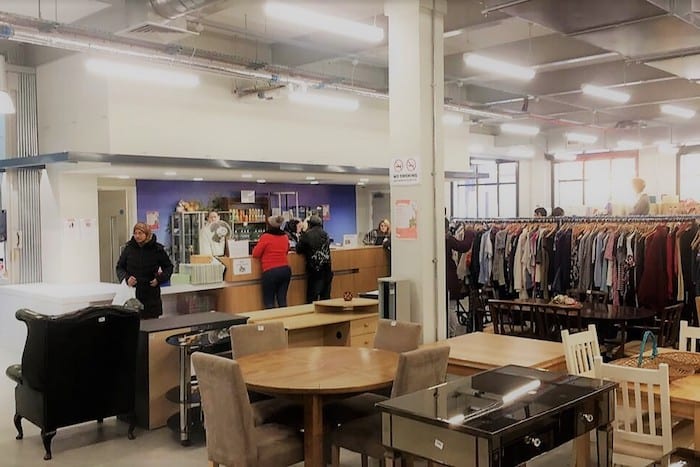
“We offer things really cheaply, so you can get a sofa for £50. If you’re on benefits or low income you get an additional 25% off and if you’ve been homeless or coming out of care and getting your first property, we’ll give you the stuff you need to make your house a home,” says Aileen.
But the shop’s got multiple purposes.
“You’ll see a lot of people with red lanyards on. They’re not just staff but our Freedom Volunteers – people who may have been homeless, or unemployed for a long time, or have mental health issues, whatever it might be,” explains Aileen.
It’s part of the Freedom Project, an employability and life skills programme where people volunteer for two days a week to learn practical skills that can be used to find future work.
“In principal, it’s a three-month programme because it has to be structured with goals but it’s not, ‘You’ve achieved your goal, bye’, or ‘You haven’t and you’re no longer welcome’. We’re here for as long as people need us.”
Three vans head out each day from the warehouse, with a driver and two Freedom Volunteers on board.
“They’ll deliver bulkier items bought from the shop or pick-up items people would like to donate. Then they’re unloaded, cleaned and function and PAT tested by our team.”
There’s also a food club on this floor. “If people go to a normal food bank, the idea is it’s a point of crisis to get you through the week and then you’ll be fine again but actually, a lot people are struggling every week,” says Aileen.
“Our food club is more like a supermarket, so you pay £2.50 and can get 10 items, including fish, meat, fruit, veg, milk and so on – and there are lots of recipe ideas, too. It just helps people’s budget to go that little bit further. Everything we do is about building people’s resilience so they’re less likely to fall through the net, because prevention is better than cure.”
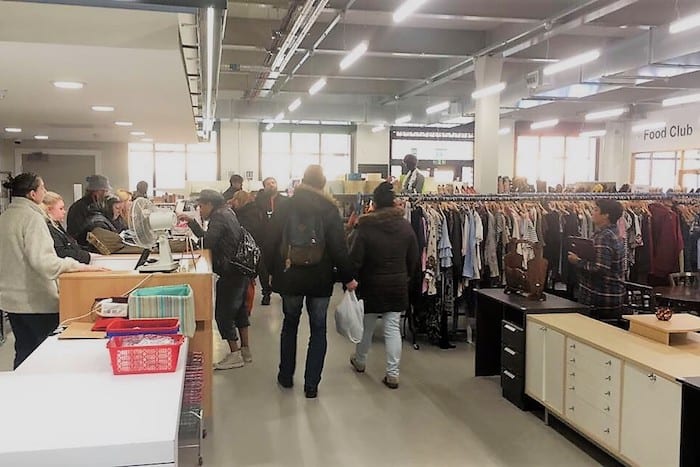
There are small one-to-one rooms dotted about so people can have discreet conversations (“It’s about dignity and respect and digging behind the issues rather than plastering over them”) and a very small but vital counselling service for people who are at particular risk.
“About 50 per cent of people on our Freedom Project are diagnosed with a mental health issue, unsurprisingly given the challenges they’re experiencing,” says Aileen.
What they’re not is a day centre, “somewhere you come in to sleep off the alcohol and chill out for the day,” she adds.
“We’re a place where change happens. You might not be ready to engage in all the services but the classes are open to everybody, and if you’re rough sleeping, you can come to the respite room, have a tea, dry-off. Change can slowly happen.”
The door to the stairs that lead up to the first floor is symbolic, as you’re only allowed through it if you’re part of the Mustard Tree community.
Upstairs is a large room where classes such as food hygiene, customer service, maths and English language are taught.
There’s also a medical room, computer skills classroom and dining area, as well as a fully-kitted professional kitchen where chef Chris trains volunteers on everything from knife skills to making sauces.
“The basics upwards, really,” he says. “It’s about getting people interested again, and to give them skills so they can get back on the ladder.”
He and his team also prepare meals for the 100 staff and volunteers each day, as well as the 150 rough sleepers who stop by for a soup run on Fridays.
“It’s a live environment, not just practice. It’s about community too as we all eat together,” says Aileen.
One of the most inviting spaces is the art room where people can try their hand at pottery, painting and textiles, and is overseen by Graham.
“It’s always been a room people gravitated to. A lot of the stuff you see is by people who’ve come in and gone, ‘I can’t paint’. What they mean is they can’t paint like Rembrandt, but not many can,” says Graham. “It’s about finding yourself in it and people do connect with creating something beautiful.”
Mustard Tree costs £1.2million a year to run. “We generate about £300,000 from our shops, receive a very small amount, about £12,000, from the local council and the rest of the money is from fundraising and people being kind,” says Aileen.
“You might put a couple of quid in a collection bucket or set up a direct debit of £10 and wonder what difference it makes, but it all adds up and every little does help.”
- This article was last updated 6 years ago.
- It was first published on 19 December 2018 and is subject to be updated from time to time. Please refresh or return to see the latest version.
Did we miss something? Let us know: press@ilovemanchester.com
Want to be the first to receive all the latest news stories, what’s on and events from the heart of Manchester? Sign up here.
Manchester is a successful city, but many people suffer. I Love Manchester helps raise awareness and funds to help improve the lives and prospects of people across Greater Manchester – and we can’t do it without your help. So please support us with what you can so we can continue to spread the love. Thank you in advance!
An email you’ll love. Subscribe to our newsletter to get the latest news stories delivered direct to your inbox.
Got a story worth sharing?
What’s the story? We are all ears when it comes to positive news and inspiring stories. You can send story ideas to press@ilovemanchester.com
While we can’t guarantee to publish everything, we will always consider any enquiry or idea that promotes:
- Independent new openings
- Human interest
- Not-for-profit organisations
- Community Interest Companies (CiCs) and projects
- Charities and charitable initiatives
- Affordability and offers saving people over 20%
For anything else, don’t hesitate to get in touch with us about advertorials (from £350+VAT) and advertising opportunities: advertise@ilovemanchester.com

“Manchester keeps it real” Comic opens up on trauma, toxic exes, and turning pain into punchlines

Bury FC complete one of football’s greatest comebacks with Gigg Lane glory

Review: The 39 Steps at Bolton Octagon Theatre is ‘wonderful, whacky and wildly imaginative’

Discotheque Royale vs Piccadilly 21s: which was your favourite 90s Manchester club?
